
Nov 30, 2016
Workers at the Zestafoni Ferroalloy factory in Georgia’s Imereti region successfully negotiated a contract after five months of negotiations with their employer that includes wide-ranging workplace safety and health improvements, wage increases and social benefits.
The three-year pact finalized earlier this month at the country’s largest silicomanganese processing plant establishes 40 hours as the standard work week, provides employees with health coverage, boosts pay for overtime and dozens more provisions.
Tamaz Dolaberidze, president of the Metal, Miner, and Chemical Workers’ National Trade Union (MMCWTUG) which represents the workers, says the contract is the first collective agreement based on the principles of social dialogue and social partnership at Zestafoni. The pact also includes language to ensure commitments are implemented and maintained.
Previous contract agreements, including one reached in 2010 and the other in 2013, were settled only after difficult strikes.
Earlier this year, MMCWTUG and the Georgian Trade Unions Confederation (GTUC) assisted 750 Georgia coal miners in Tkibuli and 170 glass factory workers in Ksani in making big gains at the workplace after long strikes by workers at both sites.
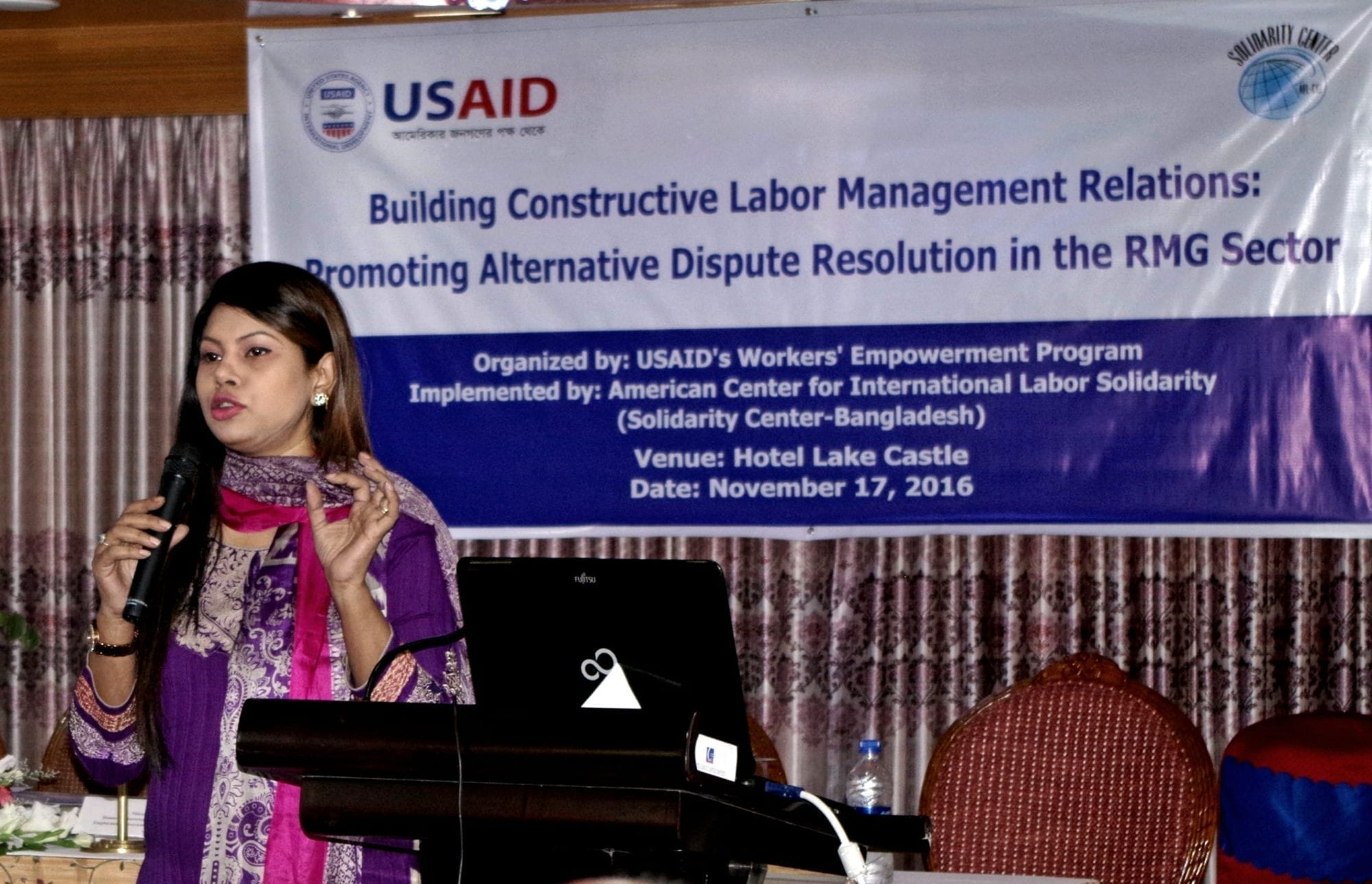
Nov 29, 2016
In August 2015, management of a shrimp- and fish-processing factory in Khulna, Bangladesh, suspended Phillip Ballav, a worker, on dubious charges at the facility. Ballav believed that as a long time worker he was targeted by management and that the suspension to be unjust.
As a result of an alternative dispute resolution (ADR) mechanism, Ballav was able to swiftly resolve the issue, and was reinstated at the factory within one month of his suspension. Had he chosen to pursue a case in one of the country’s seven heavily burdened labor courts, his petition could have languished for years without a response.
Ballav and other workers like him are using ADR in the shrimp industry to address grievances, improve workplaces and obtain justice. The process was negotiated by the Solidarity Center, the Bangladesh Frozen Foods Exporters Association (BFFEA) and Bangladesh Shrimp and Fish Foundation (BSFF).
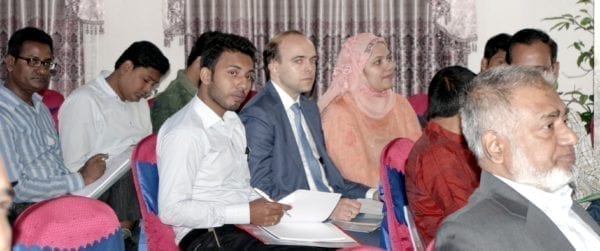
More than 60 participants discussed the need for establishing a dispute resolution process in Bangladesh’s garment sector at a recent meeting in Dhaka.
Yet for the country’s much larger garment industry, millions of workers have no uniform mechanism to resolve work-related issues with their employers.
Earlier this month, the Solidarity Center brought together more than 60 representatives from civil society, government, factory owners, garment brands and media to discuss the need for ADR in Bangladesh’s garment sector to efficiently resolve labor disputes, reduce the burden on the labor courts and foster improved labor-management relations.
Experts, including the Bangladesh secretary of labor, employer associations and the International Labor Organization, presented the features and drawbacks of formal and informal disputes resolution systems for the garment industry and examined other countries’ systems. For example, labor disputes referred to ADR bodies in South Africa and Cambodia are resolved within two months.
“In the shrimp- and fish-processing industry, the establishment and good faith use of an ADR mechanism has benefited all parties in the resolution of disputes and promoted better labor-management relations,” says Solidarity Center Country Program Director Alonzo Suson. “The ready-made garment sector could benefit greatly from ADR lessons learned and best practices in the shrimp industry as well as in other countries.”
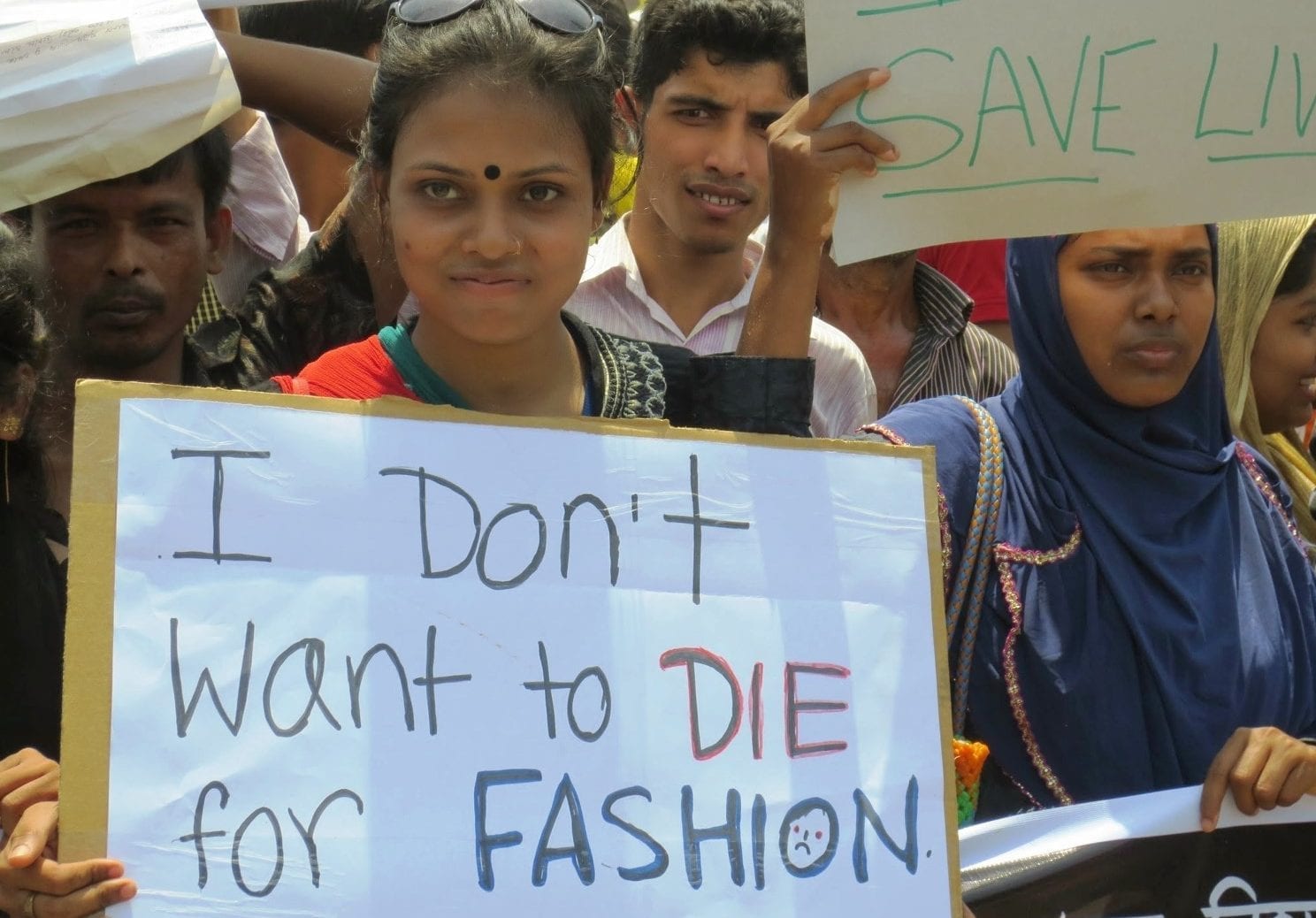
Nov 23, 2016
On the eve of the tragic Tazreen Factory Ltd. fire that in 2012 killed 112 garment workers in Bangladesh, Solidarity Center Executive Director Shawna Bader-Blau discussed on the Working Life podcast published today how global inequities led to Tazreen and to the 2013 Rana Plaza building collapse in Bangladesh—and how unions can enable workers to help prevent such disasters.
Describing her visit to the burned-out Tazreen factory, Bader-Blau says workers who survived the collapse met with her.
“They told me that they had tried to form unions in that building … and their union organizing efforts were busted by the supervisors and the employers,” she says. “They told me that had they had trade unions, they really believe they would have had more power vis à vis the supervisors and the company to negotiate things like safety improvements for themselves and adequate wages for themselves and their families.
“When workers do have the ability to form and join trade unions, they can bargain to improve their wages, they can bargain with their employers to make their conditions better. Work should be about dignity.”
Listen to the full podcast here.
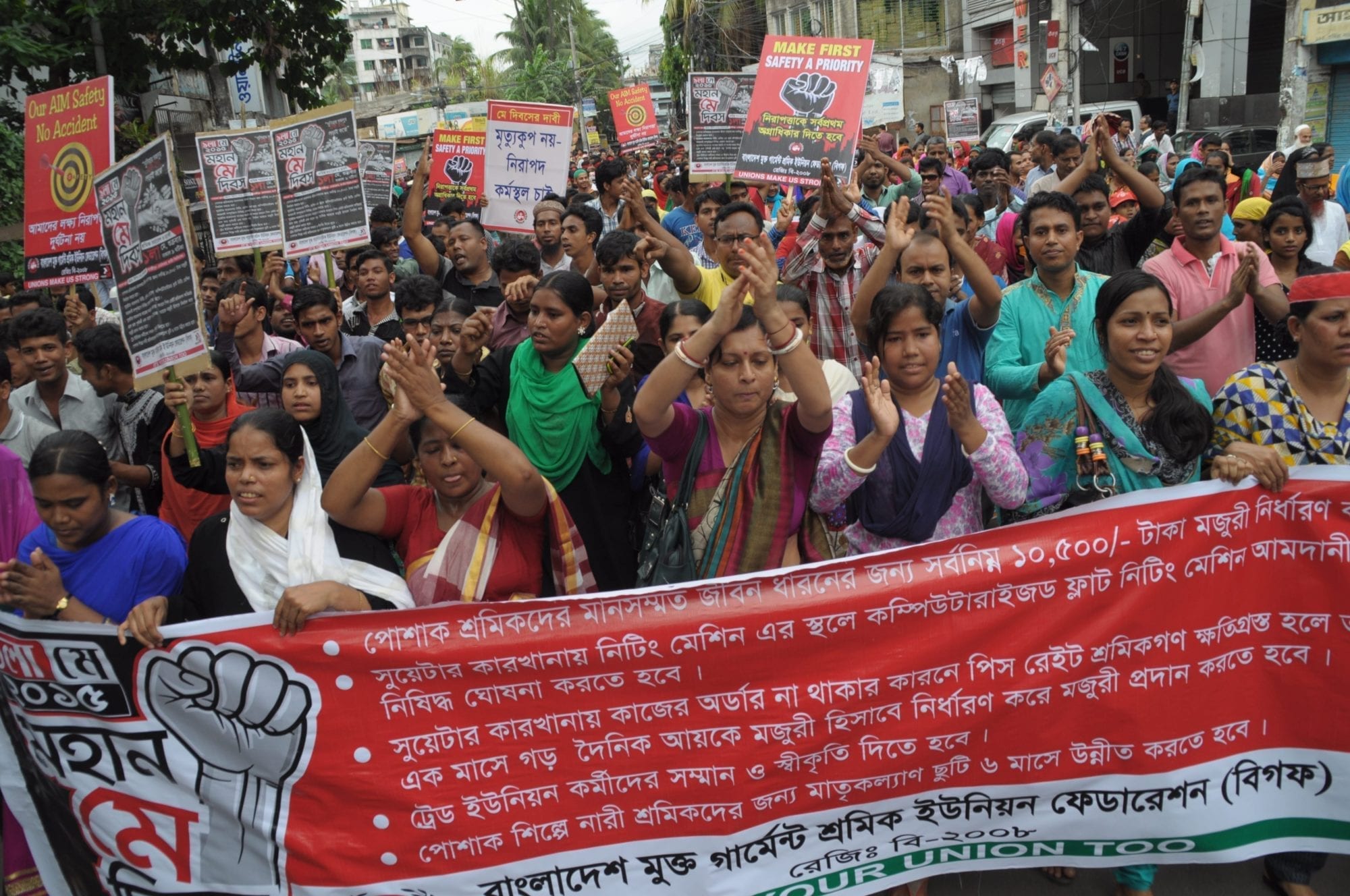
Nov 22, 2016
On November 24, 2012, a massive fire tore through the Tazreen Fashions Ltd. factory in Dhaka, Bangladesh, killing more than 110 garment workers and gravely injuring thousands more.
To mark the fourth anniversary of Tazreen, a new Solidarity Center photo essay depicts the system of exploitation in the global garment industry that made the fire at Tazreen so devastating, and showcases how workers have been standing together since the disaster to fight for safer working conditions and greater respect for their rights at work.
Dying for a Job: Commemorating the Anniversary of the 2012 Tazreen Factory Fire, illustrates how with the Solidarity Center, which partners with unions and other organizations to educate workers about their rights on the job, garment workers are empowered with the tools they need to improve their workplaces together.
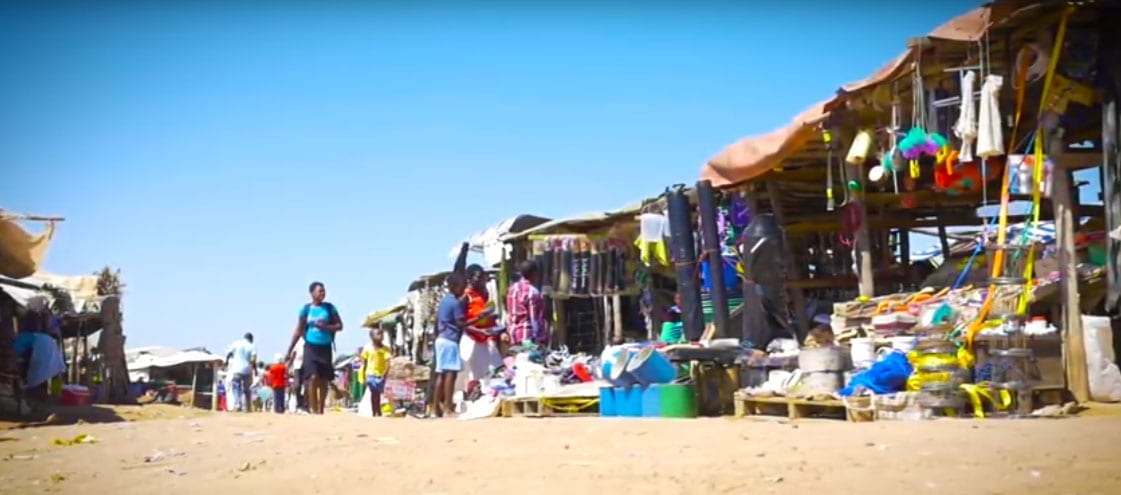
Nov 15, 2016
In Binga, a small community 400 miles west of Harare, Zimbabwe’s capital, residents support themselves and their families fishing the vast Lake Kariba. With no industry in the area, they depend on the lake for their livelihoods. Yet they say they face constant challenges in making a living—the biggest of which is harassment from officials.

“We are oppressed by the … authorities. Our fish are confiscated”—Alice Mudenda, a fisher in Binga Credit: ZCIEA
“We are oppressed by the … authorities,” says Alice Mudenda, a fisher in Binga. “Our fish are confiscated by either the police, rural district council or National Parks officials under unclear circumstances.”
Binga fishers must have a license to fish—yet it only can be obtained in Harare, an eight-hour journey, and the cost, up to $2,000 every three months, is well beyond their means.
Some 94 percent of Zimbabwe workers make their living outside the formal economy, and yet like Mudenda, they say they are harassed and bullied by authorities, according to a survey by the Zimbabwe Chamber of Informal Economy Associations (ZCIEA), a Solidarity Center ally.
81% of Zimbabwe Informal Economy Workers Bullied or Threatened
Eighty-one percent of the 514 respondents say they have been bullied, with 22 percent specifying that the harassment involved both confiscation of goods and threats of violence.
Some 36 percent noted the source of harassment stemmed both from the local authorities and the Zimbabwe Republic Police, the national police force of Zimbabwe, with 32 percent citing local authorities as the biggest source of harassment.
The ZCIEA survey also found widespread fear and distrust of law enforcement officers, with 82 percent of respondents saying they had not reported their harassment to police because police are the harassers (46 percent) or they fear police (17 percent).
Market Vendor Law Targets Livelihoods
In June, the Zimbabwe government introduced a statutory law that bans imports of basic commodities—a law that directly affects hundreds of thousands of informal economy workers who survive on cross-border trading. Merchants in towns like Beitbridge, which borders South Africa, reported plummeting sales after the law’s passage.
Tens of thousands of market vendors protested the new law, joined by civil servants outraged over the government’s refusal to pay their salaries, holding a successful one-day shut-down of businesses, government and services July 6.
The survey covered 25 areas across the country, with 53 percent of respondents women and 40 percent men (7 percent did not answer). The majority are between ages 35 and 44 (35 percent), followed by 25–34 years (27 percent) and 45–54 years (16 percent).
ZCIEA was formed in 2004, when the Zimbabwe Congress of Trade Unions (ZCTU)/Commonwealth Trade Union Council (CTUC) project began working with 22 trader associations to launch an umbrella organization to better coordinate efforts.
ZCIEA, with 198,466 registered members, offers training and legal support, along with legislative advocacy. In the report, the association points to the need to address the widespread harassment of informal economy workers by developing programs that further empower members, including workshops on legal rights and representation and preventing sexual harassment.







